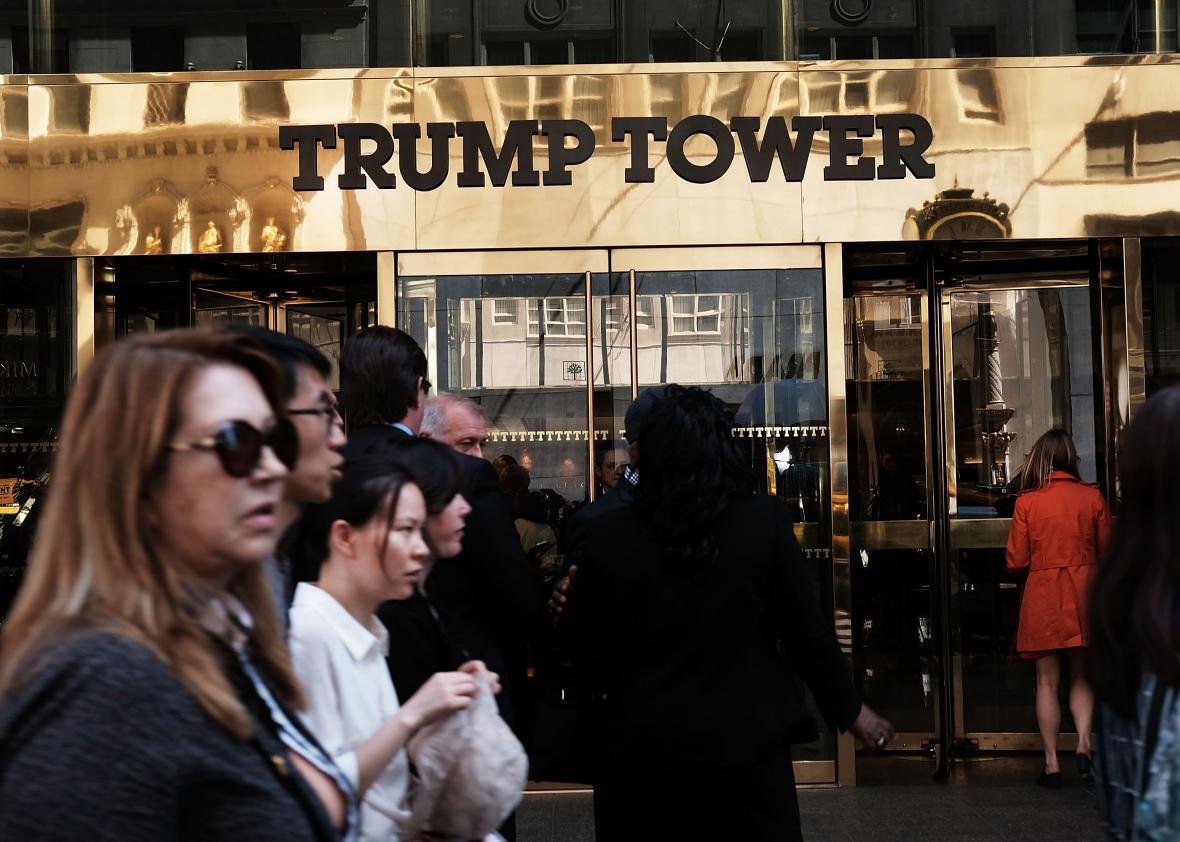Every four years, as reliably as the dawn on Feb. 29, comes the gust of American liberals promising to head for Canada after the presidential election. Lena Dunham, for example, is going to Vancouver if Trump wins. (“Now I have to get elected,” Trump quipped.)
Who, during a presidential election between the two least popular candidates in history (one of whom is Donald Trump), would want to buy a house in this country?
In the large, homebuyers do not seem to care. The mean sales price of existing homes, according to the St. Louis Fed, rose almost 20 percent between January and July. Neither candidate has plans that would meaningfully impact the average American’s homebuying plans. A Zillow survey of housing experts this spring suggested that Trump would have a negative effect on the housing market; other surveys report that most Americans wouldn’t change their plans in response to the election. The homeownership consensus is about all that’s left of bipartisan politics.
And yet, there are rumblings of a cooling market in some of the coastal cities—Los Angeles, San Francisco, New York—that you’d expect would most dread a President Trump. Could the pending presidential election be to blame? A spell of uncertainty might render Americans wary to make the largest purchase of their lives. (If election stress is deterring you from eating at Wendy’s, buying a house might be a stretch.)
If that’s the case, it would also be a bad time to list your house. “I’d advise them to wait,” said Hall Willkie, the president of Brown Harris Stevens, a New York real estate brokerage. “When there’s uncertainty, people who can delay big financial decisions tend to do that.”
An internal survey of agents conducted this spring at Corcoran, a real estate agency in New York, showed that more than a third of clients wanted to delay their housing decisions until after the election. In May, John H. Banks III, the president of the Real Estate Board of New York, pegged stalled and declining broker confidence to the tumult of the ongoing presidential campaign.
It’s hard to isolate electoral anxiety from a general late-summer lull and lingering low interest rates. “Buyers are always less confident around the election,” said Danielle Bales, a broker for Sotheby’s in San Francisco. But, she added, trends in local markets such as supply-and-demand always take precedence over whatever is happening in D.C.
And not everyone embraces the electoral anxiety thesis. “If someone wants to sell an apartment, we sell it,” one New York broker told me. “This isn’t something we’ve come across, or see any sign of in the data,” said Krishna Rao, an economist with StreetEasy.
“My personal belief is that the election will not make much of a difference,” said Ralph McLaughlin, the chief economist at Trulia. “It’s the housing-market down season; it would be better to wait until December, January, February when the market picks back up again.” Home sales typically contract in the fall and bottom out in the winter.
There are two academic ideas about presidential election economics. One theory is the “opportunistic political business cycle”—that incumbents take steps to boost the economy before an election by, say, hiking social security benefits or offering subsidies for prescription drugs. But evidence hasn’t borne this out, in part because there may also be a “reverse electoral business/investment cycle,” according to which certain sectors of the economy decline as elections approach—especially those that involve expenses that are costly to undo.
A 2014 paper by Princeton University researchers that analyzed election year economics in dozens of countries found that private consumption of nondurable goods, like toys or clothes, does go up before an election, while more weighty investments (such as buying a house or building a factory) tend to go down.
Only highly competitive elections produce “reverse investment cycles” in stable democracies, the authors found, but in less stable democracies, any old election can do that.
One sector of real estate that has been affected by the endless presidential campaign? Apartments in Trump-branded buildings, according to Amy Gotzler, a senior vice president at BHS. “If you look at some of the Trump properties on the market, instead of calling it Trump World, Trump Plaza, people are just not mentioning the word ‘Trump’ in the listing.” In this election season, looks like the only unambiguous loser in the real estate market is the Trump condo brand.
